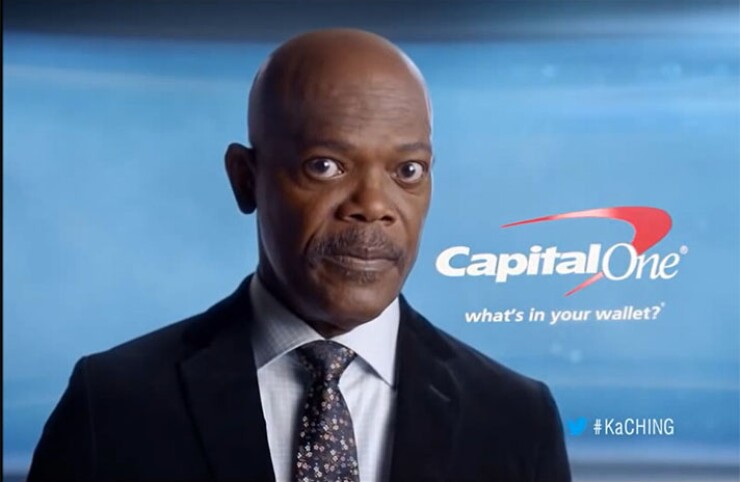Capital One Financial discriminated against blacks and Latinos by encouraging them to bank primarily by debit card, effectively denying them a broader array of banking products, two civil rights groups argue in a new lawsuit.
In a suit filed this week in federal court in the southern district of Texas, the Houston NAACP and the League of United Latin American Citizens accused Capital One of violating the Fair Housing Act, the Equal Credit Opportunity Act and the Community Reinvestment Act.
The $366 billion-asset bank’s “What’s in your wallet?” ads, often featuring black celebrities such as Samuel L. Jackson and Spike Lee, basically told those customers to transact largely with their debit cards, the suit said. At the same time, the bank closed full-service branches in predominantly minority communities, while keeping them open in white communities, the suit said.

“Black and Latino customers are welcome to deposit their money with the bank but dare not apply for credit, a mortgage or a loan,” according to the suit, which requests class-action status.
The lawsuit hinges largely on the report of a former Capital One employee, Laurie Vignaud, who worked on CRA efforts in the bank’s South Central territory. Vignaud, who is also listed as a plaintiff, said that she lost her job with Capital One after complaining that it was violating CRA by closing branches in certain areas.
“All the allegations in this case are baseless, and we will vigorously defend ourselves in this matter,” a spokeswoman for the bank said in an email Thursday. “Capital One has been thoughtful about its branch strategy in order to provide the right physical presence in all of our markets that considers the needs of our customers, the communities we serve, and Capital One.”
Capital One took particular issue with the groups’ assertion about its celebrity spokesmen, telling American Banker: “That assertion is so offensive and so far from the truth it doesn’t merit a response.”
The lawsuit called the commercials “part of a devious ploy to hide what is really going on,” writing that “Capital One is in fact telling black and brown communities ‘Only use our debit bank cards for your banking needs since we are closing our banks in your communities!’ ”
Capital One’s actions essentially “increase[ed] the digital divide between minority customers and white customers,” the lawsuit says.





